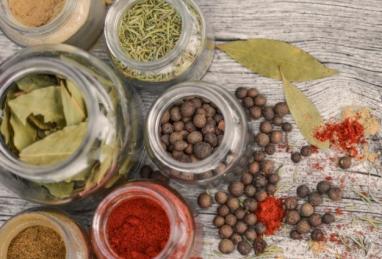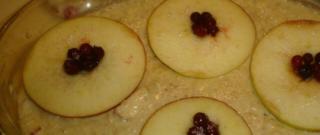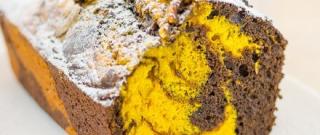Herbs in the diet and herbal remedies are making a comeback as people rediscover the value of natural ingredients and natural cures along with questioning the side effects of pharmaceutical drugs.
Indeed many of today's powerful drugs are derived from plants. Like drugs, however, herbs are not always safe in unskilled hands.
Nevertheless, there is much wisdom in the general approach of herbal medicine and there are usually fewer side effects. Furthermore, there are ailments, such as eczema, which appear to respond to herbal remedies where orthodox medicine has little to offer.
The medicinal value of herbs is being rediscovered and confirmed by modern scientific tests. But while research continues to investigate the uses of new plants, many doctors and scientists still do not acknowledge the healing power of herbs, and prefer to rely on 'tried and tested' pharmaceutical drugs. Yet our knowledge of herbs can be traced back to the Ancient Egyptians. A papyrus, dating from 1500BC, lists hundreds of medicinal herbs - including many that are still in use to day.
Many Herbs can be bought in the form of tea bags from the health foods shops or supermarkets or you could even make your own. Teas and infusions are the same thing: made from the flowers or leafy parts of the plant, they can be used as drinks or gargles.
Use a teaspoon of dried herbs - or two teaspoons of fresh herbs to a cup of boiling water.
- Pour boiling water over the herbs
- leave covered between 5 - 10 minutes
- Strain
- Drink while hot without milk or sugar
| HERB |
CULINARY USES
|
THERAPEUTIC POWERS
|
| Basil |
Classic accompaniment to all tomato dishes and import in Indian cooking
|
A natural tranquilliser, basil is said to be a tonic and to calm the nervous system. It may aid digestion and and ease stomach cramps. Basil tea may relieve nausea.
|
| Bay |
An essential ingredient of the herbal seasoning bouquet garni, used in soups, casseroles and stews.
|
Bay is used to stimulate and aid digestion.
|
| Borage |
Its leaves may be eaten in salads
|
As a tisane, it is used against rheumatism and respiratory infections
|
| Chervil |
This winter herb has a unique flavour that is a little like parsley with a hint of aniseed
|
Stimulating digestion
|
| Chives |
These tiny members of the onion family enliven potatoes, egg dishes, soups and stews.
|
Chives can stimulate the appetite as well as help digestion during convalescence.
|
| Coriander |
The pungent leaves are used in curries, salads and sauces.
|
Fresh bunches are eaten as a tonic for stomach and heart. Both seeds and leaves are used for strengthening the urinary tract and for treating urinary tract infections
|
| Dill |
Used in pickles, soups and fish dishes
|
Proved to be effective in the relief of gripes and flatulence. Many babies are given dill in the familiar form of gripe water.
|
| Fennel |
Tastes like aniseed and often added to sauces or staffing for fish
|
Both seeds and leaves can be used to aid digestion and help to prevent excessive wind, insomnia, nausea and vomiting.
|
| Mint |
There are many varieties of mint of which many are used in cooking - savoury dishes like lamb, as well as desserts; apple mint will bring out delicate flavours
|
Aids digestion and a hot infusion/Tea can help at the start of a cold.
|
| Oregano |
Also known as marjoram, it is widely used in stuffing's and pizzas
|
Aids digestion and relieves the symptoms of coughs, colds and flu when used as an infusion/tea, but, must not be used medicinally if pregnant
|
| Parsley |
The most nutritious herb, used in most garnishes and sauce.
|
Contains useful amounts of vitamin c and iron. Fresh parsley also makes a good breath freshener and is excellent to chew after eating garlic.
|
| Rosemary |
Used with lamb and chicken dishes throughout the Mediterranean.
|
It is said to act as a stimulant to both the nervous and circulatory systems and may help to soothe the digestive system, relieving indigestion and flatulence. Drinking a weak infusion/tea of rosemary can help relief of nervous headaches neuralgia and colds. It also makes a good antiseptic gargle.
|
| Sage |
Purple or red sage would be used in stuffing's to compliment such are pork and venison.
|
Herbalists claim sage can aid the digestion of rich and heavy food and calm indigestion. As well as used to gargle for sore throats, sage is recommended for indigestion, anxiety and excessive sweating
|
|






